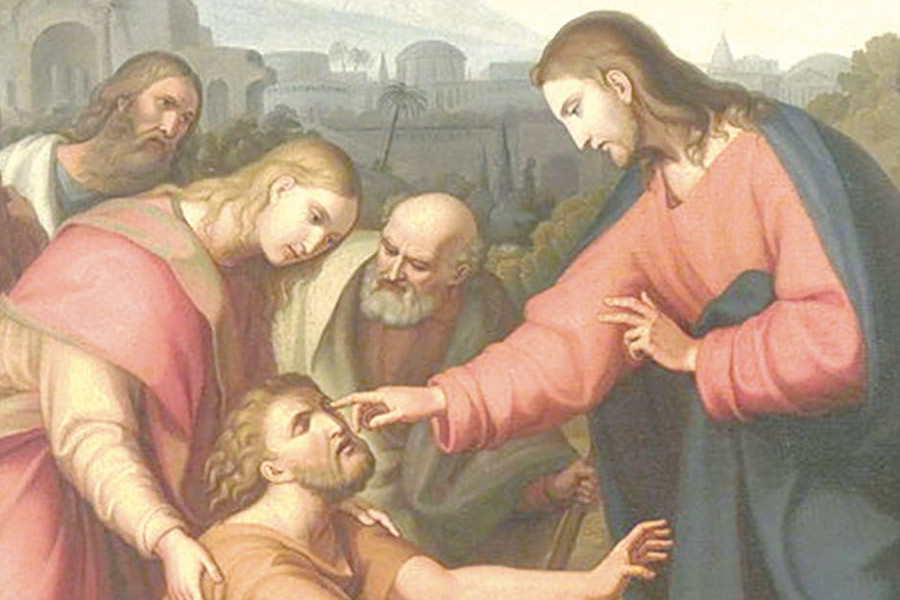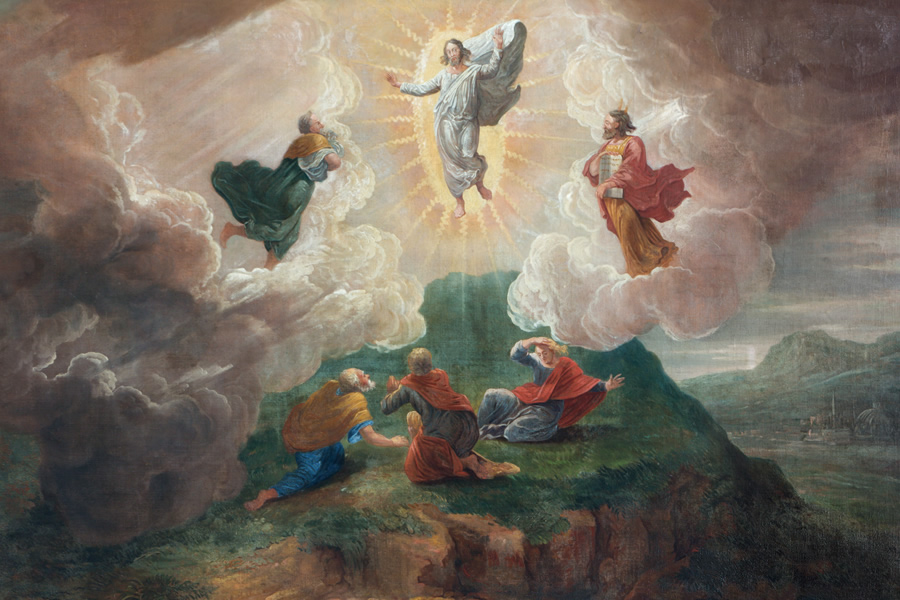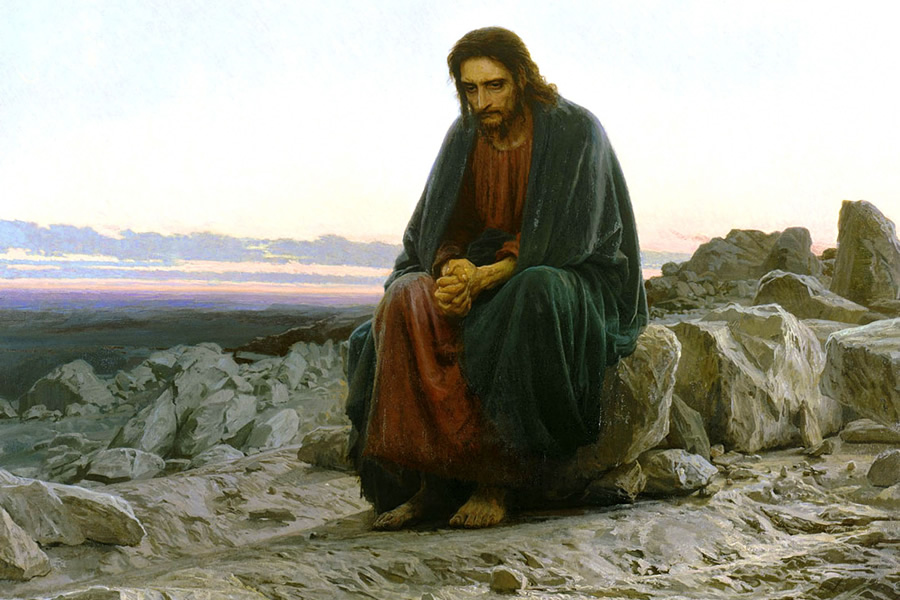Blog & Pastor Letters

Fifth Sunday of Lent
by Fr. Edward Linton | 03/26/2023 | Weekly ReflectionSomebody was telling me recently about looking for a parking place. He had been driving around for some time looking, looking, looking for a place to park when he saw a man loading the trunk of his car. My friend rolled down the window and asked, “Are you leaving?” The man looked up and said, “Yes.” Then he closed the trunk of his car and walked away. Literal thinking is not very helpful! In fact, being too literal can even destroy a relationship. I am thinking of the husband whose wife asked him on their anniversary, “Do you love me?” To which the husband responded, “You know that I love you. I told you last year!” How do we nurture a deep and personal relationship with Jesus?
Continue
Fourth Sunday of Lent
by Fr. Edward Linton | 03/19/2023 | Weekly ReflectionIn the first reading from the book of Samuel, we hear that Samuel was instructed by the Lord to go to the house of Jesse. There, the Lord would choose one of Jesse’s sons to replace Saul as the anointed king of Israel. One by one Jesse’s sons were brought in to stand in front of the prophet.
Each son seemed to have all the physical traits that one would expect for a king. And looking at each, Samuel thought, “Surely this one is the one.” However, after each of the seven sons came before Samuel, the Lord said, “Do not judge from his appearance or from his lofty stature, because I have rejected him. Not as man sees does God see, because man sees the appearance, but the LORD looks into the heart.”
Continue
3rd Sunday of Lent
by Fr. Edward Linton | 03/12/2023 | Weekly ReflectionEvery Christmas morning, in a parish where I was pastor for many years, we had a reception for homeless people. The parish served a great Christmas lunch to about 150 homeless men, women and children. One Christmas it was especially cold and wet. A long line of homeless people formed outside our hall. I strolled up and down the queue trying to keep up the spirits of those waiting to get in. One man showed me his shoes. They were old and the sole was coming apart from the rest of the shoe. He asked me if I had another pair of shoes for him. I told him I didn’t have another pair of shoes, but he should keep on asking because I was certain that someone who was helping with the lunch would definitely have a pair of shoes for him. “You have an angel here,” I told him. “You have to find the angel who has your shoes.”
Continue
The Transfiguration
by Fr. Edward Linton | 03/05/2023 | Weekly ReflectionThe Renaissance artist Raphael painted the Transfiguration scene that we hear in the Gospel today. If you have been to the Vatican Museum in Rome, you have seen this painting. If you have been Saint Peter’s Basilica, you have seen a mosaic copy of this painting to the left of the baldachin. If you haven’t been to Rome, google “transfiguration” and you will see it immediately. Many call this the greatest work of art ever painted!
Continue
First Sunday of Lent
by Fr. Brent Bowen | 02/26/2023 | Weekly ReflectionOne of the great Eastern saints of the Church, St. Gregory of Nazianzus, once famously said, “That which is not assumed is not redeemed.” He says this in reference to Jesus, who, when he chose to become incarnate, took to himself every aspect of human nature with the exception of sin. In other words, because Jesus has a human nature in addition to His divine nature, he is like us in every way; he has a human body and soul. He has a will, an intellect, and emotions. And this reality is important, St. Gregory tells us, because if Jesus had not assumed every aspect of human nature (except sin), then those aspects of human nature would not have been redeemed with his passion, death, and resurrection.
Continue
Seventh Sunday in Ordinary Time
by Fr. Brent Bowen | 02/19/2023 | Weekly ReflectionI remember the first time I read the Bible from cover to cover. I found Genesis and Exodus enthralling. There were lots of interesting stories and the narrative was easy to follow. Then I began reading the Book of Leviticus, the book from which today’s first reading is taken. Suddenly I found myself somewhat lost in paragraph after paragraph of laws and prescriptions about the sacrifices prescribed by God, cleanliness, and a lot of other rules that seemed obscure and completely disconnected from my own life, making it very difficult to follow.
Then I got to chapter 19, part of which we hear at Mass today. In verses 1–2, we hear, “The Lord said to Moses, ‘Speak to the whole Israelite community and tell them: Be holy, for I, the Lord, your God, am holy.’” This, my friends, is the most important part of this chapter because it is the reason behind all of the law of Moses. God, whose essence consists in supreme holiness, has chosen this people to be peculiarly his own. He has freed them from their captivity in Egypt, and is now leading them through the desert into the promised land. Along the way, he instructs his holy people on how to be in relationship with an all-holy God and with one another. When we read the story of the Old Testament, it can be easy to get caught up in the details of the law, losing sight of this great truth: the reason God calls His people to observe these laws is because He is holy, and He desires them to have a share in His holiness.
Continue
Sixth Sunday in Ordinary Time
by Fr. Brent Bowen | 02/12/2023 | Weekly ReflectionJesus gives us the interpretive key to this long passage in verse 17 when he says, “Do not think that I have come to abolish the law or the prophets. I have come not to abolish but to fulfill.” Jesus’ original hearers, an audience primarily made up of Jewish men and women, would have recognized that he is making a messianic claim: He is the one whom God promised to send. In His very person, Jesus is bringing to fulfillment the Kingdom of God. For example, in Deuteronomy 18:15, Moses says, “A prophet like me will the Lord, your God, raise up for you from among your own kindred; that is the one to whom you shall listen.” Likewise we see Jesus as the fulfillment of the prophecy made in Isaiah 11:1, “A shoot shall sprout from the stump of Jesse,” King David’s father, “and from his roots a bud shall blossom.”
Jesus is trying to tell us how we are to interpret his coming: not to abolish everything that God had done up to that point in the history of salvation, but rather to fulfill it. In the Old Testament, God calls and chooses His people, he establishes a covenant with them, and only then does he give them the precepts of the law. Or, put another way, God first establishes a relationship with his people, and then he teaches them how to live in that relationship. The law teaches them how to conduct themselves before God and among one another.
Continue
Called to be Salt and Light
by Br. Silas Henderson, S.D.S. | 02/05/2023 | Weekly ReflectionYou are the light of the world. A city set on a mountain cannot be hidden. Nor do they light a lamp and then put it under a bushel basket; it is set on a lampstand, where it gives light to all in the house. Just so, your light must shine before others, that they may see your good deeds and glorify your heavenly Father. —Matthew 5:14-16
Were you afraid of the dark as a child? Are there little ones (or even “grown-ups”) in your life who can’t stand being left in a room with no lights?
Continue